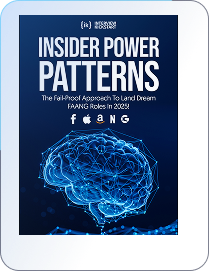Cloud computing interview questions are essential for anyone preparing for a cloud engineering role, especially with the increasing demand for cloud expertise. Cloud computing allows for the delivery of shared resources like applications, storage, networking, and business management, making it easier to navigate and utilize through standardization and automation.
As cloud technology has become integral to the digital world, cloud engineers are more sought after than ever. To help you prepare, we’ve updated our list of cloud computing interview questions to guide you through the basic, intermediate, and expert-level questions commonly asked in FAANG+ cloud engineer interviews.

To help you warm up and brush up on your foundational knowledge, here are some basic cloud engineer interview questions and answers:
A collaboration among networks, hardware, services, storage, and interfaces that are used in provident commuting as a service is known as a cloud. It has three users — end users, cloud service providers, and business management users.
The different versions of cloud are:

â€
The primary constituents of the cloud ecosystem that let you know how you see cloud architecture are:

â€
Read AWS Cloud solutions architect roles and responsibilities to learn more about the role.
Here are some main advantages of cloud computing:
Function as a Service (FaaS) offers users a platform where they can develop, manage, and run their applications without worrying about the infrastructure’s maintenance.
The most common levels of data storage that cloud storage device mechanisms offer are:

â€
For more examples of the kinds of interview questions you can expect, read Top AWS Cloud Support Engineer Database Interview Questions.
After getting a good grasp of the basics, you can practice these intermediate-level cloud engineer interview questions and answers to keep the momentum going:
Amazon Machine Image or AMI is a copy of your root file system. It provides the information required when launching an instance. AMI is implemented by specifying when you want to launch an instance. From a single AMI, several instances can be in the same configuration.
When it comes to launching instances with different configurations, different AMIs must be launched. In the case of instance-store-backed AMIs, AMI consists of one or more snapshots of EBS volumes, accompanied by a template for the root volume of your instance.
The permissions it launches are the ones that decide which one of the AWS accounts can use the AMI when launching instances. Further, it requires a block device mapping for determining the volumes in the correct order to connect them to the instances when they’re launched.
The components that enable the development of applications to happen without the complications of managing the infrastructure are known as serverless components. This means that the user can write the code without accessing the server.
Serverless machines are responsible for virtual machines and container management. These components also manage other aspects, such as multithreading and hardware allocating.
To prepare better for your upcoming Cloud engineer interview, you can check our post on Google Cloud Interview Questions.
As you move up the ladder and appear for interviews for higher positions, you’ll need to be prepared for an advanced level of questions. Here are some cloud engineer interview questions and answers to help you get started:
The primary features of AWS are:
Resource replication is the process in which duplicates of the same resource are created. Replication is done when the requirement of a particular resource is constantly increasing. The resource is then virtualized to duplicate cloud-based resources.
A monitoring agent is an intermediary and event-driven program created as a service agent and placed along the existing communication paths. Used for transparently monitoring and amazing dataflows, the monitoring agent keeps track of the network traffic along with the message metrics.
Do you want to know how much a cloud engineer makes? You can check our article on AWS cloud support engineer salary in the US and see the compensation details.
As you gear up for your cloud engineer interview, remember that companies nowadays look for engineers with experience in Linux, OpenStack, Amazon Web Services, Google Compute Engine, and Microsoft Azure.
Further, having good knowledge of DevOps, APIs, and NoSQL will only improve your chances of getting hired. So prepare a strategy that includes cloud engineer interview questions based on all these topics.
You must also check out these Must-Know DevOps Principles to Answer Interview Questions.
Now that you have had a sneak peek into how cloud computing MCQs for IT professionals are asked with different complexity levels, you must have evaluated your preparedness. With the right approach and guidance, you can excel in interviews with high-tech companies, whether it’s AWS MCQs, Azure fundamentals, or others.
Interview Kickstart brings you Early Engineering Interview Masterclass course, curated by FAANG+Â cloud computing experts. Leverage the power of live training sessions, coding classes, mock tests, exposure to opportunities, the latest trends in the job market, and more. Get to know our success stories from 17,000+ tech professionals, and join us for your career skill development.
Some of the most important cloud engineering skills are Linux, database skills, programming, networking, DevOps, virtualization, and so on.
An IT professional who helps create and maintain the cloud infrastructure is known as a cloud engineer. Under the cloud engineering umbrella, there are more specific roles, such as cloud architecting, development, and administration.
Some sample cloud architect interview questions are — Define Amazon EC2. What are some of the security best practices for Amazon EC2? What is meant by Identity and Access Management (IAM)? Can you list some of its uses?
When focusing on cloud engineering course interview preparation, prioritize core cloud concepts such as virtualization, storage, and networking. Additionally, dive into security practices, monitoring, and platform-specific knowledge like AWS, Azure, or Google Cloud. Real-world applications of these concepts can help you tackle scenario-based questions effectively.
A cloud engineering course provides structured guidance and hands-on projects, which are invaluable for interview preparation. Through a well-rounded curriculum, you gain expertise in cloud platforms, learn best practices for troubleshooting, and get comfortable with tools like Kubernetes and Docker. This experience is critical for succeeding in technical interviews and on-the-job challenges.
Related reads:
Information Technology MCQs for Newcomers: A Comprehensive Guide
50+ Advanced Java MCQs for Java Professionals: Boost Your Coding Confidence
Top 30 Object-Oriented Programming MCQs for Software Developers
Database Management System MCQs for IT Specialists: Top 20 Questions and Answers
â€
Attend our free webinar to amp up your career and get the salary you deserve.

693+ FAANG insiders created a system so you don’t have to guess anymore!

100% Free — No credit card needed.

Time Zone:






Get your enrollment process started by registering for a Pre-enrollment Webinar with one of our Founders.

The 11 Neural “Power Patterns” For Solving Any FAANG Interview Problem 12.5X Faster Than 99.8% OF Applicants
The 2 “Magic Questions” That Reveal Whether You’re Good Enough To Receive A Lucrative Big Tech Offer
The “Instant Income Multiplier” That 2-3X’s Your Current Tech Salary

The 11 Neural “Power Patterns” For Solving Any FAANG Interview Problem 12.5X Faster Than 99.8% OF Applicants
The 2 “Magic Questions” That Reveal Whether You’re Good Enough To Receive A Lucrative Big Tech Offer
The “Instant Income Multiplier” That 2-3X’s Your Current Tech Salary
Just drop your name and email so we can send your Power Patterns PDF straight to your inbox. No Spam!
By sharing your contact details, you agree to our privacy policy.
Time Zone: Asia/Dhaka

We’ve sent the Power Patterns PDF to your inbox — it should arrive in the next 30 seconds.
📩 Can’t find it? Check your promotions or spam folder — and mark us as safe so you don’t miss future insights.
We’re hosting a private session where FAANG insiders walk through how they actually use these Power Patterns to crack interviews — and what sets top performers apart.
🎯 If you liked the PDF, you’ll love what we’re sharing next.
Time Zone:

